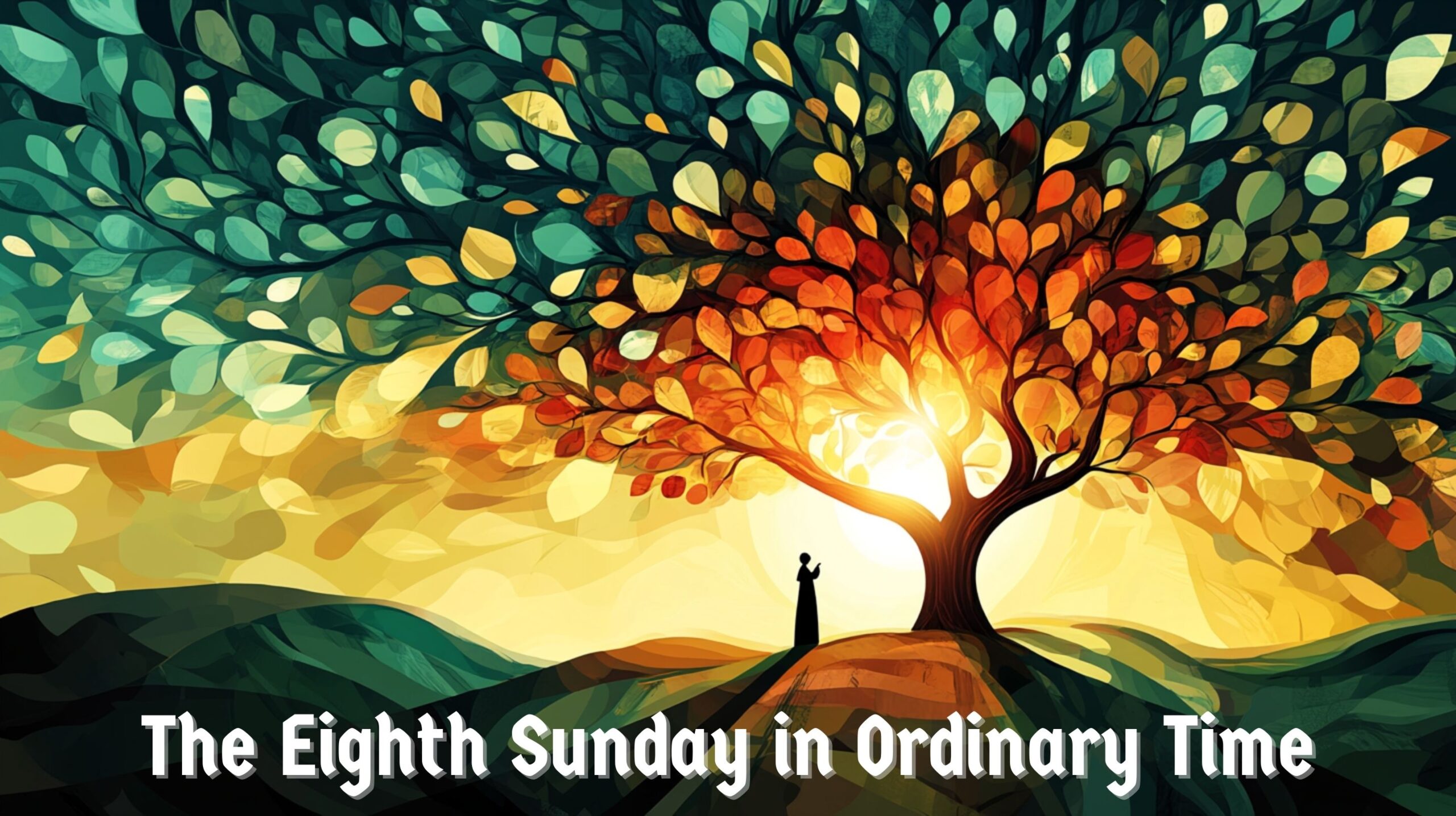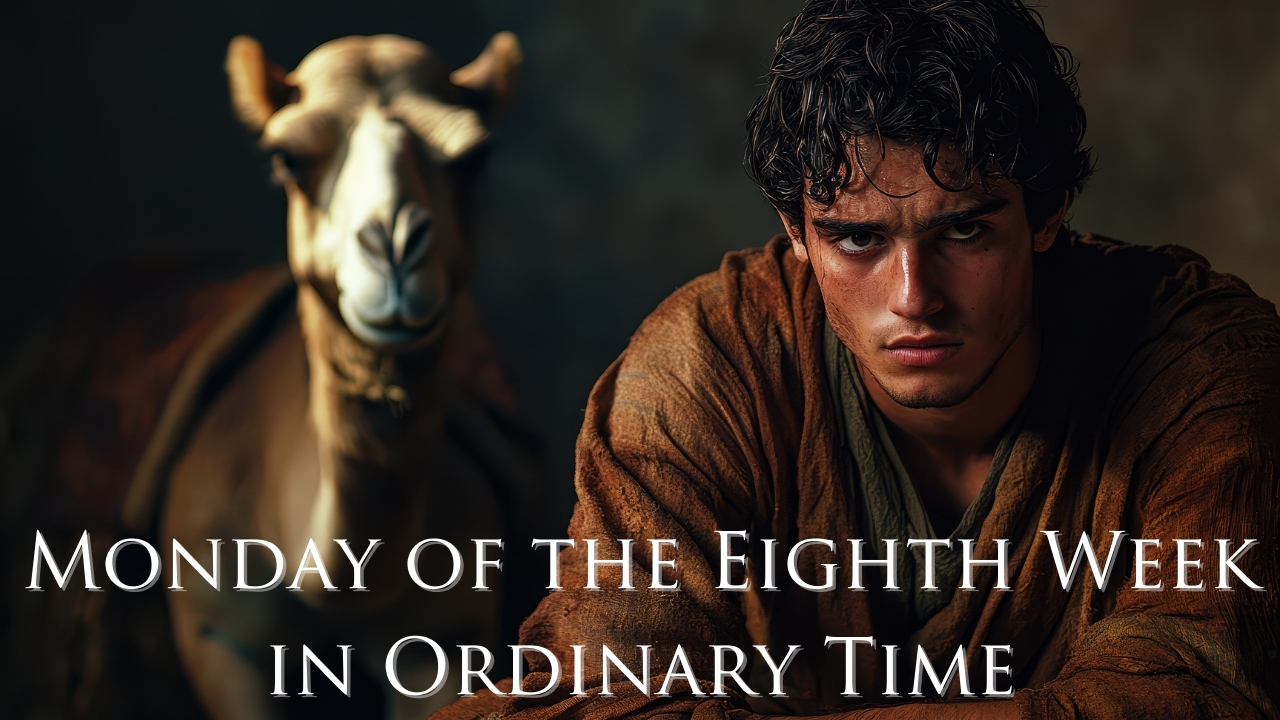The Audacity of Divine Friendship | Daily Readings | May 23, 2025

May 23, 2025 – Daily Catholic Lectionary Readings for Friday of the Fifth Week of Easter.
“I no longer call you servants, but friends.” In the ancient world, this statement was revolutionary beyond comprehension. Gods didn’t befriend humans—they dominated them. Yet Jesus obliterated cosmic hierarchy with one impossible invitation to friendship. The Jerusalem Council’s burden-lifting letter demonstrates what happens when divine friendship flows through human leadership, while David’s cave-born praise reveals the unshakeable confidence that friendship with God produces even in our darkest moments.
This cinematic reflection explores:
- Why Jesus calling disciples “friends” was culturally explosive
- How the Jerusalem Council modeled collaborative leadership with the Holy Spirit
- What “steadfast heart” worship looks like when circumstances are dire
- How divine friendship creates communities of grace rather than performance
Readings: Acts 15:22-31; Psalm 57:8-9, 10 and 12; John 15:12-17
Perfect for anyone questioning their worth before God, struggling with religious performance, or wondering what authentic Christian community really looks like.
#AudacityOfFriendship #NoLongerServants #DivineRevolution #FridayReflection #FifthWeekEaster
The Audacity of Divine Friendship
Readings: Acts 15:22-31; Psalm 57:8-9, 10 and 12; John 15:12-17
Picture this: You’re in the ancient world, where gods are distant, terrifying, and unpredictable. They demand appeasement, not affection. They inspire fear, not familiarity. They rule through power, not partnership.
Then Jesus drops this bombshell: “I no longer call you servants, but friends.”
The audacity is staggering. In a culture where even Caesar’s closest advisors were still fundamentally slaves, Jesus obliterates the cosmic hierarchy with one impossible word: friendship.
But here’s what makes this revolutionary – He doesn’t just declare it; He demonstrates what divine friendship actually looks like in practice.
The Jerusalem Council’s letter reads like the world’s first example of divine friendship in action. No religious bureaucracy. No power plays. No burden-dumping. Instead: “It seemed good to the Holy Spirit and to us…” Notice that? Collaborative decision-making with God Himself.
When they write to the Gentile believers, they don’t issue commands from on high. They acknowledge confusion, validate concerns, and lift burdens rather than add them. This isn’t divine dictatorship, it’s friendship-based leadership that mirrors how Jesus treats His own.
David understood this friendship centuries before Christ made it explicit. Hiding in a cave while King Saul hunts him down, what does he do? Complain? Bargain with God? Beg for rescue?
No. He throws a worship party at dawn.
“My heart, O God, is steadfast; I will sing and make music with all my soul.” This isn’t desperate religious performance, it’s the confident joy of someone who knows he’s beloved regardless of circumstances. David’s praise isn’t conditional on his situation improving; it flows from a relationship that transcends conditions.
This is what friendship with God produces: unshakeable confidence even in caves of difficulty.
But Jesus takes this friendship concept to places no ancient mind could imagine. “Greater love has no one than this: to lay down one’s life for one’s friends.” He redefines friendship itself, not mutual benefit between equals, but sacrificial love that elevates the beloved.
Then comes the revolutionary part: “Everything that I learned from my Father I have made known to you.”
Think about this. The eternal Son of God, privy to the deepest secrets of divine purpose, says, “I’m bringing you into the inner circle. You get to know what I know. You understand what I understand.”
This isn’t about earning access through religious achievement. “You did not choose me, but I chose you.” Divine friendship is gift, not reward. Initiative flows from Him to us, not us to Him.
The fruit He mentions isn’t religious activity, it’s the transformation that happens when human beings discover they’re friends of the Most High. When people experience this friendship, they naturally begin treating others the way they’ve been treated: with burden-lifting grace rather than burden-adding requirements.
Here’s the connection the lectionary wants us to see: The Jerusalem Council’s gracious letter wasn’t just good church politics—it was divine friendship filtering through human leadership. When friends of God gather to make decisions, they instinctively mirror His heart.
They encourage rather than condemn. They unify rather than divide. They create space for others to flourish rather than demanding conformity to their comfort zones.
This is the revolution Jesus started. Not just personal relationship with God, but communities that operate from friendship rather than fear, grace rather than performance, collaboration rather than control.
The question for us: Are we still trying to be really good servants, or have we received the scandalous invitation to friendship? And if we’re truly friends of God, how is that transforming how we treat others?
Because here’s the thing, friends of God create friendship culture wherever they go.






